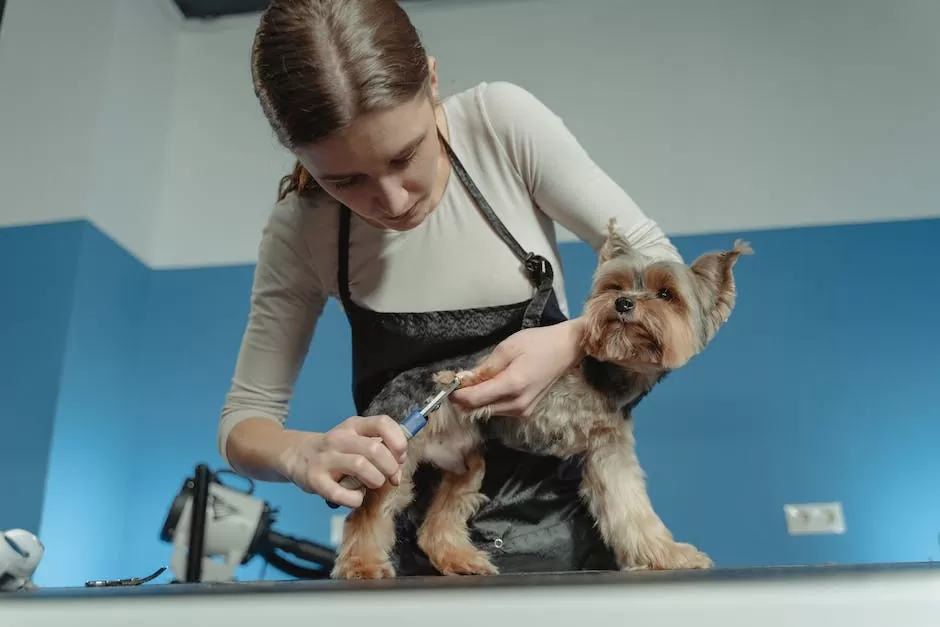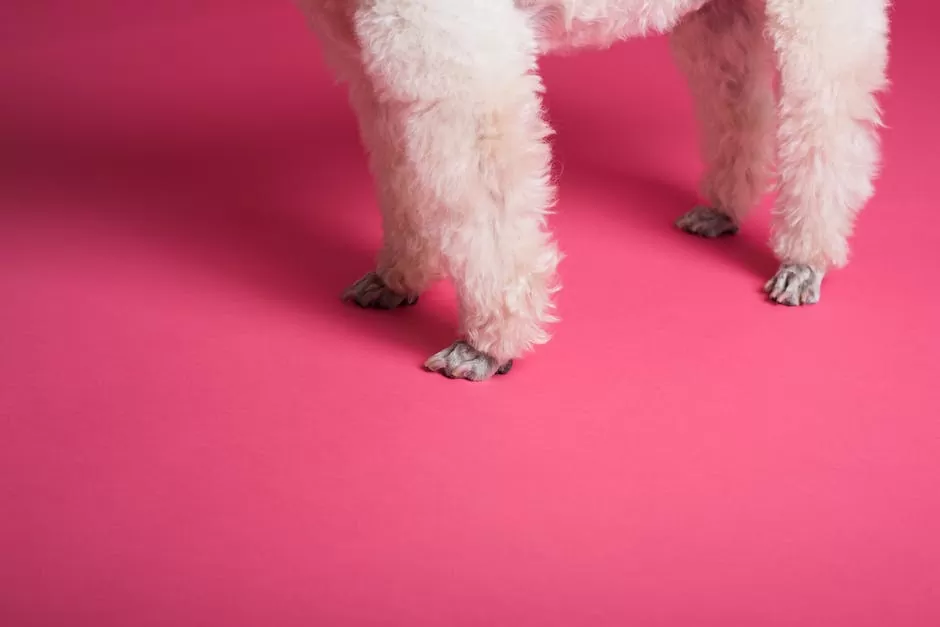9 dog grooming tips for sensitive skin?

There are a lot of different dog grooming tips out there, but if you have a dog with sensitive skin, you need to be extra careful. Grooming your dog can be a tricky process, but if you follow these nine tips, you’ll be sure to give your pup the perfect groom.
1. Bathe your dog regularly using a hypoallergenic or oatmeal-based shampoo.
2. Avoid using conditioners, as they can aggravate sensitive skin.
3. rinse your dog thoroughly after bathing to remove all traces of shampoo.
4. Be careful when using topical flea and tick treatments, as some can cause allergic reactions in sensitive dogs.
5. Brush your dog regularly using a soft-bristled brush, to help remove dead skin cells and distribute natural oils.
6. Avoid using perfumes or colognes on your dog, as these can also cause skin irritation.
7. Keep your dog’s nails trimmed to avoid scratches and irritation.
8. Check your dog’s ears regularly, and clean them if necessary, to avoid infection.
9. Make sure your dog has ample access to clean, fresh water to drink to keep skin hydrated.
What can I do for my dogs sensitive skin?
There are a few things you can do to help reduce your dog’s exposure to allergens:
1. Use specially-formulated shampoo – this will help remove allergens such as dust and pollen, but also re-moisturise the skin to combat allergies.
2. Wipe your dog’s feet – this can help remove outdoor allergens before your dog enters the house.
3. Keep your dog well-groomed – regular brushing will help remove allergens from your dog’s coat.
4. Keep your house clean – vacuum regularly and dust often to reduce the amount of allergens in your home.
If your dog has itchy, dry, or sensitive skin, there are a few things you can add to the shampoo to relieve his symptoms. You can make a shampoo that has glycerin—which can be found in pharmacies, some grocery stores, and online—and aloe vera gel. Or you can make an oatmeal shampoo.
How often should you bathe a dog with sensitive skin
It is important to get a bathing routine going when you are suffering from a skin infection. Bathing once a week will help relieve pain and itching, and increase healing and recovery from any infections. Once the infection has been treated, either with antibiotics or in many cases with a cream, you should be able to reduce bathing to every two weeks.
You lightly pull the skin of the the coat away from the from the um skin And just brush gently with your fingertips to remove any dirt or debris that might be stuck in the coat. You can also use a lint roller to remove any hair or fur that might be stuck on the coat.
What foods irritate dogs skin?
If you have a food allergy, it is important to know which foods contain the allergens that you are allergic to. The most common food allergens are: gluten, grains, eggs, soy, dairy, beef, chicken, and lamb.
Dogs can be allergic to a variety of different food proteins, including those from dairy, beef, chicken, chicken eggs, soy, or wheat gluten. Each time a pet eats food containing these substances, the antibodies react with the antigens, and symptoms occur. Virtually any food ingredient can produce an allergy, however.
Can I use Dawn dish soap to wash my dog?
Dawn dish soap can be a safe choice to bathe your dog in rare circumstances, but it is not recommended as a regular shampoo. Your dog’s skin can be sensitive to allergies, have different coat conditions, and even different pH levels than human skin, so this strong soap can be very irritating to their skin.
There are many brands of dog shampoo on the market, and they all have different ingredients. You should read the label on the shampoo bottle to see if the ingredients are safe for your pup. If your pup has allergies or sensitive skin, you may want to purchase a hypoallergenic or natural dog shampoo.
Why does my dog itch so much after grooming
groomed skin can often be itchy because of the type of grooming products used, reaction to the chemicals in the products, or simple skin sensitivities. If you develop an itchy rash after grooming, discontinue using the product and consult your veterinarian. If the rash continues, seek medical attention from your veterinarian or a dermatologist.
If your pet seems itchy, you can bathe him with a shampoo that is designed to soothe irritation, fight infection, and relieve pruritus. However, it is important to consult your veterinarian about the best product to use. Never use human products on your pet unless your veterinarian advises it.
Should dogs sleep with you?
There is no need to worry about sleeping with your dog – as long as both of you are healthy, it is perfectly safe. In fact, recent research suggests that sharing your bedroom with your canine companion may actually improve your sleep. As long as your dog is not under the covers, there is no need to worry about harmful bacteria or allergies. If you have any concerns, be sure to speak with your veterinarian.
Coconut oil is a great natural remedy for dogs with eczema or other skin allergies. It can help to soothe the itchiness, inflammation and scaly skin associated with these conditions. Coconut oil is also safe for dogs to consume, so it can be used both topically and internally to help treat your dog’s eczema.
What causes skin sensitivity in dogs
Dogs can suffer from dry, itchy and sensitive skin, just like humans. This can be a result of environmental reasons, allergies or other genetic factors. While a little scratching is perfectly normal, excessive scratching can be a sign of an underlying problem.
Brushing your dog’s fur before bathing them is the best way to remove any loose fur and debris from the coat. This also makes sure that any mats or tangles are brushed out, as these will be more difficult to remove when wet. Make sure the water is around the same temperature as the dog’s body.
What can I add to my dogs food to help with itchy skin?
There are a few common supplements recommended by veterinarians that can help improve your pet’s health. Fish oil contains omega-3 fats which can reduce inflammation and alleviate allergies. Coconut oil can improve many skin conditions, such as itchiness and dryness. Digestive enzymes can help with digestion and quercetin can help reduce inflammation. Yucca can also help reduce itchiness.
Since symptoms of food allergies can take a while to become apparent, it’s important to be aware of the most problematic ingredients. Beef, corn, dairy, and wheat are some of the most common allergens, so it’s important to avoid these if you’re allergic.
Why is my dog so itchy but has no fleas
Dogs who keep itching but don’t have fleas or mites are more likely to have a skin infection, according to VCA Hospitals. These infections may be bacterial or might be fungal. Yeast infections may also be a culprit for some itching in dogs.
Flea allergy dermatitis (FAD) is fairly self-explanatory. It’s the most common skin disease in pets, and results from an allergic or hypersensitivity reaction to the flea’s saliva during feeding.
What is the most common dog allergy
Skin allergies, also called allergic dermatitis, are the most common type of allergic reactions in dogs. Allergies can develop to any number of things in the environment, including components of the food they eat, the air they breathe, or contact with their skin. Typical signs of allergies include itching, scratching, licking, and chewing. If you think your dog may have an allergy, it’s important to talk to your veterinarian to determine the best course of treatment.
There are a few different things to consider when picking the best food for a dog with allergies. Limited ingredient foods are a great option, as they contain fewer components that could potentially trigger an allergic reaction. Hypoallergenic foods are also a good choice, as they are specifically designed to be gentle on a dog’s digestive system. Ultimately, it is important to work with a veterinarian to determine which food will be best for your individual dog.
How do you wash a dog’s face
There are a few different ways that you can shampoo your hair. One way is to squirt the shampoo into your hands, then rub your hands together and apply the shampoo to your hair. Another way of doing it is to get a big glob of shampoo in your hand and work it into your hair. You can also massage your scalp with your fingers while you shampoo your hair. Whichever way you choose, make sure that you work the shampoo into your hair and scalp well and rinse it out thoroughly.
Human baby shampoo is probably the most popular dog shampoo substitute. Dish soap is a common dog shampoo substitute. White vinegar is a great way to get rid of any lingering odors on your dog. Baking soda can be used to freshen up your dog’s coat.
Warp Up
1. Use a hypoallergenic or sensitive skin dog shampoo when bathing your dog.
2. Be sure to rinse your dog’s coat thoroughly after bathing to remove all traces of shampoo.
3. Avoid using any harsh chemicals or cleaners on your dog’s coat or skin.
4. Brush your dog’s coat regularly to remove any dead skin cells and promote circulation.
5. Use a higher quality dog food to provide your dog with essential nutrients for healthy skin.
6. Give your dog regular baths to keep their skin clean and free of allergens.
7. Apply a hypoallergenic moisturizer to your dog’s coat after bathing to help soothe their skin.
8. Ask your veterinarian for recommendations on other sensitive skin care products.
9. Be observant of your dog’s skin and coat and seek professional help if you notice any problems.
If you have a dog with sensitive skin, these 9 grooming tips will help keep your furry friend looking and feeling their best. Regular bathing and grooming can help to remove any irritants that may be causing your dog’s skin to become inflamed. Be sure to use a gentle, hypoallergenic shampoo and avoid any harsh chemicals. You should also consider using a humidifier in your home to help keep your dog’s skin from becoming too dry. By following these simple tips, you can help your sensitive-skinned dog stay healthy and happy.